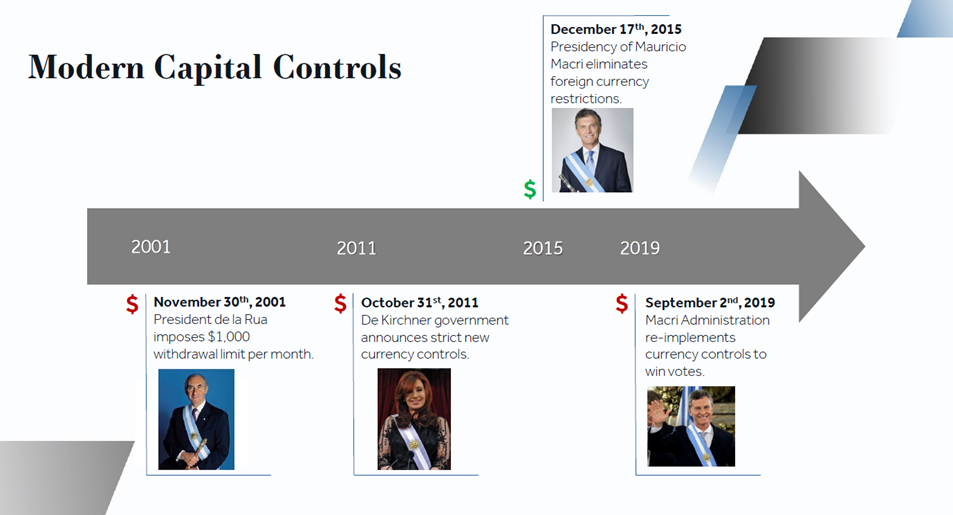A Guide to Argentina’s Foreign Exchange Regulations
Financial district of Buenos Aires.
Argentina has a long and complex economic history, with frequent financial crises and periods of inflation. Since 2011, the government has clamped down on foreign exchange transactions and remittances to control the outflow of capital and protect the value of the Argentine peso.
As organizations with operations in Argentina will know, these restrictions can make it difficult to transfer funds to and from the country. We put together this guide to Argentina’s foreign exchange regulations as of April 5, 2023. We will keep you updated on any developments.
What are Argentina’s Foreign Exchange Regulations?
The following are some of the key rules and restrictions that organizations should be aware of:
Limit on the amount of US dollars that can be purchased: The government sets a monthly limit on the amount of US dollars that companies can purchase. The limit varies depending on the industry and exceeding the limit can result in fines and penalties.
Restrictions on the purchase of foreign currency: The government requires individuals and companies to provide documentation proving the need for foreign currency before they can purchase it. This documentation includes invoices, contracts, and other supporting documents. Individuals can buy USD 200 per month, this is called dolar solidario, and it has certain restrictions. When it comes to companies, they are restricted to access the Official FX.
Repatriation requirements for exporters: Companies that export goods or services from Argentina must repatriate their earnings within a specific time frame. Failure to comply with this requirement can result in fines and penalties.
Restrictions on the transfer of profits and dividends: The government imposes restrictions on the transfer of gains and dividends out of the country, requiring companies to obtain approval from the central bank before making these transfers.
Restrictions on the use of credit cards abroad: The government imposes a tax on credit card purchases made abroad, in an effort to discourage Argentine consumers from spending foreign currency overseas. Taxes are as high as 100%: a 30% "impuesto PAIS" tax, 45% taxes on gains, and 25% tax on personal goods.
Source: https://www.bcra.gob.ar/Pdfs/Texord/t-excbio.pdf
Brief History of Argentina's Economic Situation
In the 20th century, Argentina experienced periods of economic growth and prosperity, but also suffered numerous economic crises.
Since 2011, the Argentine government has implemented a series of capital controls to manage the outflow of capital and protect the value of the peso. Some of the key measures include:
2011: The government introduces restrictions on the purchase of US dollars for personal use, requiring individuals to provide documentation proving their income and tax status.
2012: The government introduced a 15% tax on credit card purchases made abroad, to discourage Argentine consumers from spending foreign currency overseas.
2013: The government introduces stricter controls on the purchase of foreign currency for business purposes, requiring companies to provide documentation proving the need for the foreign currency.
2015: The government lifts some of the restrictions on foreign exchange transactions, but maintains a limit on the amount of foreign currency that can be purchased per month.
2019: Following a change of government, the new administration tightens controls on foreign exchange transactions, introducing a limit on the amount of US dollars that can be purchased per month and requiring exporters to repatriate their earnings within a certain time frame.
Blue Chip Swap
The Blue Chip Swap, also known as the Contado con Liquidación, is a legal way to circumvent some of the government's foreign exchange restrictions in Argentina. The Blue Chip Swap involves purchasing securities in one market and then selling them abroad in a secondary market for the desired currency. This allows investors to obtain Argentine Pesos at a higher exchange rate or US dollars at a lower exchange rate than the official rate. Because the Blue Chip Swap is a transaction between private parties, it does not affect the government reserves, which the current rules seek to protect.
For organizations with operations in Argentina, navigating the complex foreign exchange regulations can be challenging. This is where Cash Management Group at Canaccord Genuity comes in - as a trusted and experienced partner, we can help streamline treasury management and provide customized solutions to meet the specific needs of each organization.
With a deep understanding of the local regulations and market dynamics, Cash Management Group can help organizations optimize their cash flow, manage foreign exchange risk, and ensure compliance with the latest regulatory requirements.
Please do not hesitate to reach out to us if you have any questions or concerns. Call us at +1 604.643.0101 or email cashgroup@cgf.com.
Market Updates
Our market commentary breaks down the latest business, financial and money news. If you’d like to receive all of our market update emails, send us an email by clicking the subscribe button. If you found this content helpful, share it widely!


